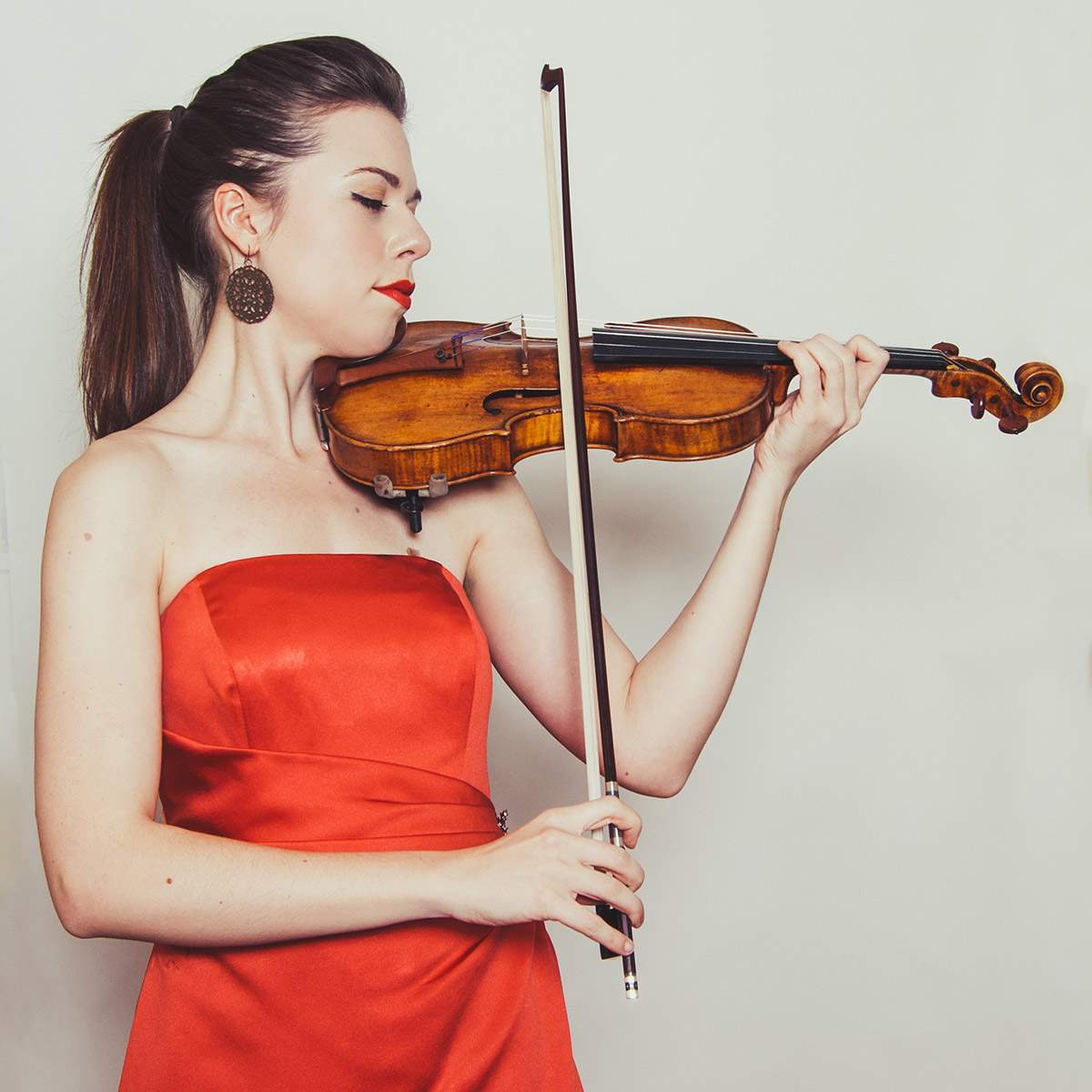LINCOLN CENTER
Alice Tully Hall
The Chamber Music Society of Lincoln Center
Farewells
Beethoven - Sonata in G major for Violin and Piano, Op. 96 (1812)
Strauss - Metamorphosen for Two Violins, Two Violas, Two Cellos, and Double Bass (1945)
Dvořák - Trio in E minor for Piano, Violin, and Cello, Op. 90, “Dumky” (1890-91)
"From the idyllic opening of Beethoven’s final violin sonata, to the impassioned evocations of Bohemian culture in Dvořák’s “Dumky” Trio, this program breathes the nostalgic air of departure. Music’s ability to say “goodbye” in such nuanced ways is miraculous, be they farewells that are anguished, wistful, or even joyful."
PLEASE TURN OFF CELL PHONES AND OTHER ELECTRONIC DEVICES. Photographing, sound recording, or videotaping this performance is prohibited.
ABOUT TONIGHT'S PROGRAM
"Although it seems odd to welcome someone to a farewell, that’s exactly what we intend to do now!
Of course we are always saying “hello” rather than “goodbye” to you, as the ends of our concerts initiate only brief intervals between CMS events at which we may see any number of you again. Such is the nature of our organization: we do embody the meaning of the word society in all its good connotations.
A farewell is the opposite of a greeting. It provokes an entirely different set of thought processes and induces a unique emotional reaction. While a greeting inspires anticipation, a sense of adventure into new relationships or a refreshing of old ones, a thoughtful farewell (and they usually are more deeply considered) will likely include reflection on one’s relationship to the departing entity, whether it be a person, a country, a home, or an era. There is also the question of the cause of the farewell: was it forced or voluntary? Did you leave someone or did they leave you? The variety and subtleties are almost endless, and therein lies the rich trove of human connections for great composers to call upon.
We are delighted to offer this program of a trio of farewells, each born of
a different human experience. Ludwig van Beethoven, that most indomitable
of artists, always found a way to win the game at the end, even through his own loneliness and suffering. His final violin and piano sonata is a rather jovial goodbye to that genre, as if to say “I’ve had a great time writing these ten sonatas, and now, hurray, I’m done!” The first movement does have a wistful quality, but the finale is jovial, much in the manic, giddy style of his final Op. 135 string quartet. The aged and ill Richard Strauss, on the other hand, was in mourning for his lost world, living in war-torn Europe in 1945. Strauss witnessed the total destruction of his native culture, including its landmarks, such as the Vienna Opera House on March 12, 1945. He began composing this deeply sadwork the very next day. And Antonín Dvořák, about to embark on a three-yearjourney to America in 1892, used this piano trio to say a temporary farewell to his beloved homeland on a 40-concert tour. Filled with Bohemian melodies, harmonies, and folk-inspired dances, the work is a heart-felt tribute to all thatDvořák loved about his country, and has no doubt inspired a similar affection in listeners around the world for all things Czech."
"Although it seems odd to welcome someone to a farewell, that’s exactly what we intend to do now!
Of course we are always saying “hello” rather than “goodbye” to you, as the ends of our concerts initiate only brief intervals between CMS events at which we may see any number of you again. Such is the nature of our organization: we do embody the meaning of the word society in all its good connotations.
A farewell is the opposite of a greeting. It provokes an entirely different set of thought processes and induces a unique emotional reaction. While a greeting inspires anticipation, a sense of adventure into new relationships or a refreshing of old ones, a thoughtful farewell (and they usually are more deeply considered) will likely include reflection on one’s relationship to the departing entity, whether it be a person, a country, a home, or an era. There is also the question of the cause of the farewell: was it forced or voluntary? Did you leave someone or did they leave you? The variety and subtleties are almost endless, and therein lies the rich trove of human connections for great composers to call upon.
We are delighted to offer this program of a trio of farewells, each born of
a different human experience. Ludwig van Beethoven, that most indomitable
of artists, always found a way to win the game at the end, even through his own loneliness and suffering. His final violin and piano sonata is a rather jovial goodbye to that genre, as if to say “I’ve had a great time writing these ten sonatas, and now, hurray, I’m done!” The first movement does have a wistful quality, but the finale is jovial, much in the manic, giddy style of his final Op. 135 string quartet. The aged and ill Richard Strauss, on the other hand, was in mourning for his lost world, living in war-torn Europe in 1945. Strauss witnessed the total destruction of his native culture, including its landmarks, such as the Vienna Opera House on March 12, 1945. He began composing this deeply sadwork the very next day. And Antonín Dvořák, about to embark on a three-yearjourney to America in 1892, used this piano trio to say a temporary farewell to his beloved homeland on a 40-concert tour. Filled with Bohemian melodies, harmonies, and folk-inspired dances, the work is a heart-felt tribute to all thatDvořák loved about his country, and has no doubt inspired a similar affection in listeners around the world for all things Czech."









































